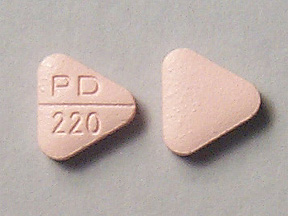Accuretic Interactions
There are 656 drugs known to interact with Accuretic (hydrochlorothiazide/quinapril), along with 18 disease interactions, and 3 alcohol/food interactions. Of the total drug interactions, 54 are major, 548 are moderate, and 54 are minor.
- View all 656 medications that may interact with Accuretic
- View Accuretic alcohol/food interactions (3)
- View Accuretic disease interactions (18)
Most frequently checked interactions
View interaction reports for Accuretic (hydrochlorothiazide / quinapril) and the medicines listed below.
- amlodipine
- Aspir 81 (aspirin)
- aspirin
- atorvastatin
- bisoprolol
- Celebrex (celecoxib)
- Crestor (rosuvastatin)
- Cymbalta (duloxetine)
- doxazosin
- eszopiclone
- felodipine
- fluoxetine
- gabapentin
- glipizide
- Lantus (insulin glargine)
- levothyroxine
- Lipitor (atorvastatin)
- Lyrica (pregabalin)
- metformin
- Neurontin (gabapentin)
- Norco (acetaminophen / hydrocodone)
- Norvasc (amlodipine)
- omeprazole
- pantoprazole
- prednisone
- simvastatin
- Synthroid (levothyroxine)
- Toprol-XL (metoprolol)
- Vitamin C (ascorbic acid)
- Zocor (simvastatin)
Accuretic alcohol/food interactions
There are 3 alcohol/food interactions with Accuretic (hydrochlorothiazide / quinapril).
Accuretic disease interactions
There are 18 disease interactions with Accuretic (hydrochlorothiazide / quinapril) which include:
- angioedema
- bone marrow suppression
- hemodialysis
- hyperkalemia
- hypotension
- anuria
- electrolyte losses
- liver disease
- lupus erythematosus
- renal function disorders
- liver disease
- renal dysfunction
- asthma
- diabetes
- hyperlipidemia
- hyperparathyroidism
- hyperuricemia
- thyroid function tests
More about Accuretic (hydrochlorothiazide / quinapril)
- Accuretic consumer information
- Compare alternatives
- Pricing & coupons
- Reviews (1)
- Drug images
- Latest FDA alerts (3)
- Side effects
- Dosage information
- During pregnancy
- Drug class: ACE inhibitors with thiazides
- En español
Related treatment guides
Drug Interaction Classification
| Highly clinically significant. Avoid combinations; the risk of the interaction outweighs the benefit. | |
| Moderately clinically significant. Usually avoid combinations; use it only under special circumstances. | |
| Minimally clinically significant. Minimize risk; assess risk and consider an alternative drug, take steps to circumvent the interaction risk and/or institute a monitoring plan. | |
| No interaction information available. |
Further information
Always consult your healthcare provider to ensure the information displayed on this page applies to your personal circumstances.


